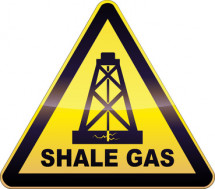Ideas into movement
Boost TNI's work
50 years. Hundreds of social struggles. Countless ideas turned into movement.
Support us as we celebrate our 50th anniversary in 2024.

When citizens are left out of debates confined to government and the business community, the only means of influencing policy is to petition, protest, or litigate, usually after the horse has bolted. Will fracking be the latest technology introduced without any public debate?

Despite having one of the world’s most liberal constitutions, South Africans still have no transparent and participatory mechanisms for deciding democratically on the uptake of new technologies or development projects, even those which impact on millions of lives and livelihoods.
There are limited opportunities for intervention in very circumscribed public participation processes, which are often derisory in the sharing of any sovereignty with citizens in the name of producing better public policy. When citizens are left out of debates confined to government and the business community, the only means of influencing policy is to petition, protest, or litigate, usually after the horse has bolted.
The mining industry has almost free reign in operating in fragile buffer areas of World Heritage Sites
Examples of this abound, especially in relation to controversial technologies. Government took little trouble to consult the public on questions of building the now-defunct pebble bed modular reactor; of allowing aluminium smelters to consume massive amounts of our once-cheap electricity; or of the introduction of genetic modification of our food crops. The mining industry has almost free reign in operating in fragile buffer areas of World Heritage Sites or in the face of opposition from local communities.
Adjudication of these kinds of conflicts is usually via government fiat, not through any fair, transparent democratic consultation process. In terms of environmental and health impacts, there has been a steady watering down of public participation, seen as a brake on development. The protocols associated with environmental impact assessments have been streamlined, often resulting in too little time for sufficient public consultation. Often government resorts – as did its predecessor regime – to the publication of opportunities for public comment in the Government Gazette, allowing only a 30-day response time. No efforts have been made nor have any resources been set aside to facilitate or promote effective public participation.
The National Environmental Advisory Forum, which was a consultative body of civil society representatives established under the National Environmental Management Act No. 107 of 1998, was subsequently abolished in later amendments to the Act.
Fracking, a shorthand term for hydraulic fracturing, is the latest example of a new technology that will be introduced without any public debate. This will happen immediately that one of the oil companies receives an exploration right from the oil and gas regulator, the Petroleum Agency of South Africa, which simultaneously has the role of promoting the oil and gas industry. Applicants for this exploration right have to lodge an Environmental Management Plan, and when this is published, the public, in the form of registered interested and affected parties, are given a short time in which to comment.
The threat of litigation around the imperfections of this process, and around the absolute lack of any impartial scientific investigation into the technology and its impacts, resulted in the Minister of Mineral Resources, Susan Shabangu, declaring a moratorium on the issuing of exploration licences. Further development is frozen until the moratorium is lifted, possibly as early as February 2012.
The Minister created a task team to undertake research into fracking to enable a decision on the lifting of the moratorium. Certain government officials were included, but others excluded, with no representation from agriculture, water, environment, energy, tourism and health. Without transparency, suspicions are mounting that the task team is obliged to consult the very oil companies who seek licences to frack. Litigation is under way to put pressure on the Minister to reveal the membership, qualifications, terms of reference, minutes, research undertaken, and experts consulted by members of the task team.
Water and Environmental Affairs Minister Edna Molewa has stated in Parliament that the water legislation needs to be made more robust in order to “ensure adequate control” to prevent contamination from fracking. Further conflicts may have to be resolved in the courts of the land, since there is no other social space in which these can be fairly adjudicated.
To read more, download the paper.